Triumphs and Failures on the Era of Metternich (1815-1848)
Good evening everyone! Today I will be sharing my historical essay that i wrote for about 2 weeks in my major class.
This article focuses on the “Era of Metternich” that aims to examine and evaluate the triumph and failures of one of most prominent figures of world history-Clemens Von Metternich of Austria thus intent to answer and support the argument which is
Clemens von Metternich heavily relies on his ultra-strict policies on 1815-1848 that leads to failure rather than success.
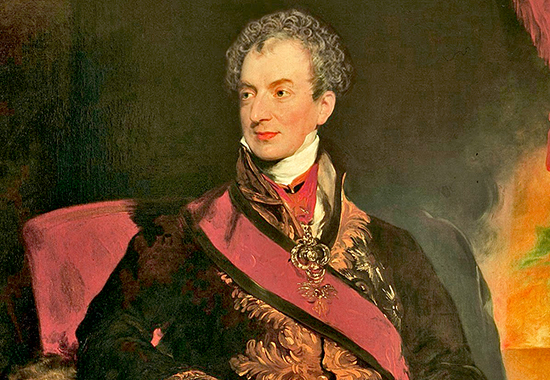
photo source
The fall of Napoleon Bonaparte had led so many opportunities to several European nations starting with the creation of the Congress of Vienna in 1814 that aims to reorganize Europe.
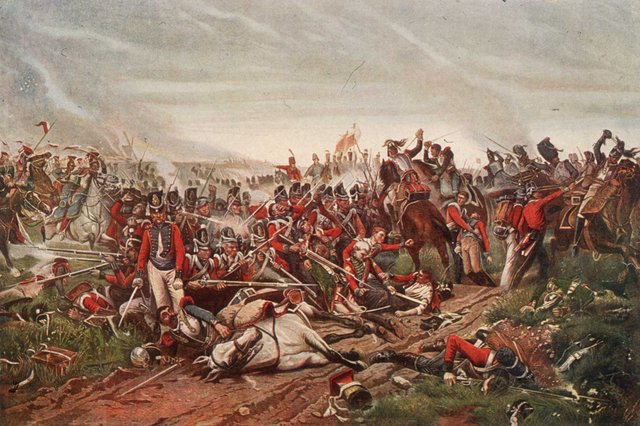
photo source
The most important leading statesmen were present in Vienna and the foremost and highlight in the Assemblage was Prince Clemens Metternich, chief minister of Austria. His reign as Austrian foreign minister was from 1809 to 1848 and was considered a major player in European affairs for twice as long as Napoleon Bonaparte. He came from an old aristocratic family whose members had held many high offices in the Holy Roman Empire.
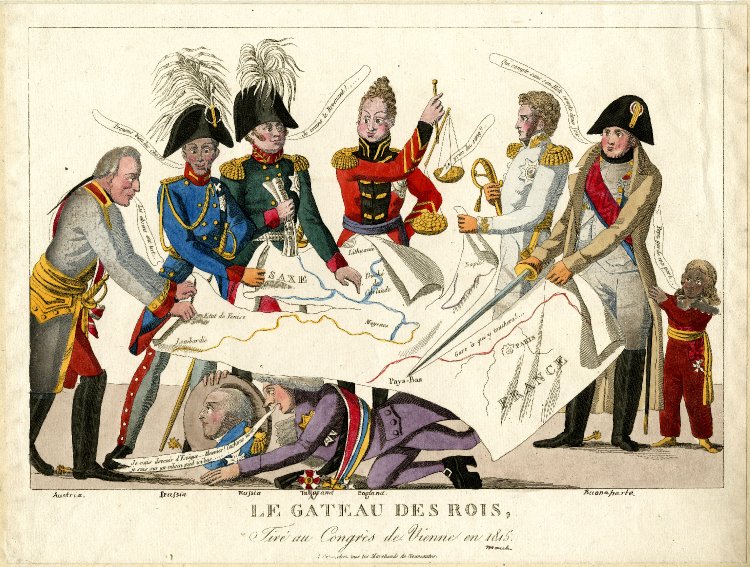
photo source
Clemens von Metternich had exercised considerable influence throughout the continent and believed that Europe’s stability depended on a balance of power among the great powers. Metternich policies were ultra-strict for he believed that through conservatism there is peace within nations, and will preserve the old regime.
Through which he suppressed any nationalistic and liberal trends in Central Europe. Metternich strongly believed that nationalism and liberalism were the ideologies that were responsible for devastating wars. Thus, the period of 1815-1830 was considered as the success of conservatism as Metternich set ultra-strict policies that set an example of repression of nationalist and liberals. Some of his ultra-strict policies include maintaining strong military army, the establishment of censorship between publications and as well as theatrical plays and emphasizing the conservative ecclesiastics in charge of education.
The situation in Europe in 1814-1848 was greatly formed by Metternich's five policies: suppressing the revolutionary ideas, assuming peace throughout Europe, preventing another upheaval of France, ensuring the prevention of the expansion Russia, and having a firm grip over Germany.
Stating the obvious that Metternich is born with privilege, his ultimate goal in his policies was to really preserve order in Europe through his conservative system with an ultra-strict policies, in which he believes that the best form of government is monarchy. Equality in society and political liberty would be the destruction of his own class' privileges. Metternich, having viewed himself as a policeman in Europe, is eager in arresting and putting an end to any sparks of revolution and liberalism wherever he can detect them.
So, Metternich made sure that he would prevent any revolutionary upheaval in France, for it had been included in the Vienna settlement the erecting of barrier state, making frontiers that would be strong enough to hold any revolutionary aggression of France, enough for the government to muster their forces against the revolutionist. With that, Metternich believes that peace could be achieved throughout the continent. Having the theme “balance of power” in the Congress of Vienna, Russia, one of the great powers, was prevented to acquire the whole Poland. Metternich always intervene, with the help of other powers, in checking Russia's expansion to the Balkans. Lastly, Metternich secured his firm grip over the German Confederation, ensuring that Austria had maintained its supremacy over the other. All in all, Metternich's ultra-strict policies aim to maintain the balance of power, and also ensuring Austria's supremacy among other powers in Europe.
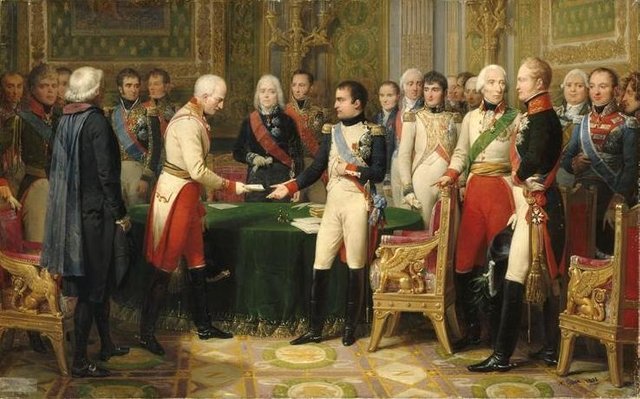
photo source
Metternich ultra-strict policies
Metternich ultra-strict policies had successfully led to fifteen years temporary peace within European nations. The era between 1815-1830 was dubbed as 'triumphant conservatism' in the sense that throughout this era, Metternich was able to achieve what he sought idealistically. Metternich was successful in creating an international system of reactionary governments whose goal is to maintain a set of European boundaries, preventing revolutions and changes in the government, and stopping any nation from becoming too powerful. Through the Congress of Vienna along with Metternich’s ultra-strict policy, the powers agreed to meet whenever trouble should crop up in Europe to discuss how to fix it.
His Ultra-strict policy failed
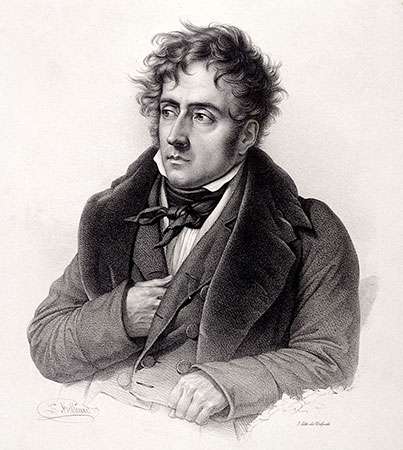
photo source
However, Metternich's goal of maintaining order and peace in Europe through the Congress of Vienna, did not last long. Within a few years, it has been understood that the five great powers, who made the Congress of Vienna possible, simply did not have similar goals or interest in order for the powers to cooperate and work together on any issue that will come before them. The disruption of the forum of the five great powers started when Great Britain withdrew and abandoned the policy of intervention against the revolutions that happened in other countries, because Britain wanted to do no more with the conservative Continental powers. Also, after the death of Tsar Alexander I, Metternich had trouble with Russia that leads to the decline of his influence in that country. As Metternich's power and influence in Europe decreased, his ultra-strict policy is also weakening. With no help from other European powers, it would be difficult to solve the problems that would come at hand.
Besides the declining authority of Metternich, another factor that leads to the downfall of his ultra-strict policy was his incapability of making reforms. Metternich is knowledgeable of the needs of reform, he did not oppose to it but believed that such changes should be only gradual. He made a step of trying to enhance the relationship between Austria and the remote provinces throughout the Empire by restructuring the administrative system. Even so, Metternich did not make any social and economic reforms, fearing that such reforms would shake the internal balance of the class structure that would end in a destructive revolution. For this reason, the grievances of the peasants had increased. Likewise, Emperor Francis I of Austria also rejected some of Metternich's supposedly useful reforms, preventing him from solving problems in the society that would lessen the grievances of the people. In addition, Metternich had lost his full authority and control when the Council of State was created, and he had to collaborate with others including Kolowrat, which is the Minister of Interior of Austria since 1822, who is the enemy of Metternich.
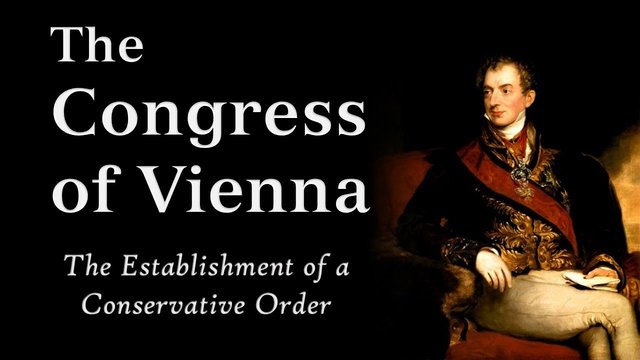.jpg)
photo source
Another problem was that, Austria had been exhausted financially. After the Napoleonic Wars, Austria had been experiencing budgetary problems. One of Metternich's biggest mistake to the Austrian Empire was persisting her as a “European necessity” - being held responsible to Metternich's self-imposed mission to maintain peace and balance in central Europe against the expansion of Russia and the upheaval of France, and to keep Germany and Italy under Austria's conservative grip. This was beyond the resource of Austria to sustain, making it vulnerable to the upcoming revolutions not just in the German states but throughout central Europe.
The Rise of Nationalism
This video shows us how nationalism opens the consciousness of the people, The rise of nationalism is another factor to the failure of Metternich's ultra-strict policy, as a matter of fact, it is the major factor of the downfall of Metternich's system. This system which has an ultra-strict policy resulted to the ultra-nationalistic feeling of the people, especially to those who belong to the lower class-who has the majority of the nation’s population. The Conservative system that is preserved by the congress angered the masses which further resulted to series of revolutions - the situation that Metternich and the other powers avoided and prevented to happen. In the year 1848, the revolutions had started. It first began in the streets of Paris. This act of upheaval inspired other revolutions that happened in Europe during 1848. Taking their cue from Paris, liberals and nationalist agitated against the conservative status quo and sought their own political aims. For this reason, the peace and order in central Europe was destroyed.
The Austrian Empire Weaken
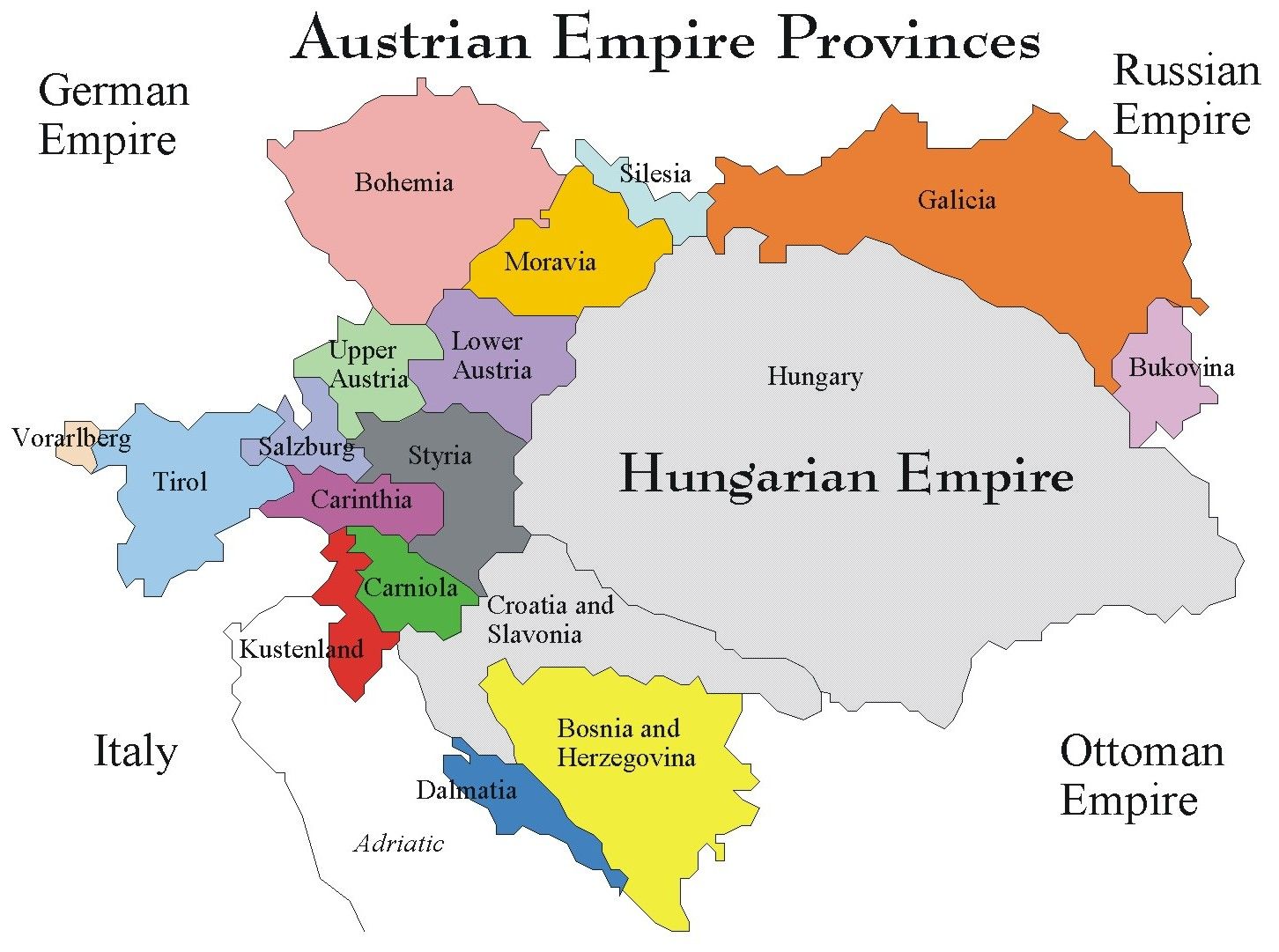
photo source
In the case of the Austrian Empire, racial factor became the reason for its weakening power. The reason for the birth of nationalistic ideologies throughout the German states was the incapability of Metternich to unite the separate racial groups within the empire into a more unified Austrian state. On the contrary, he even encouraged the recognition of each of the provincial identities by sponsoring the development of local cultural traditions. With this, Metternich had hoped that different nationalist would keep each other in check by the animosity between the different races.
However, this only awakened the realization of many people that they were not German, and obviously, the next step would be to get independence from the Austrian Empire. This inflame the nationalist feeling of the people that prompts them in participating in the series of tremendous upheaval throughout the Empire. As a result, the German liberals and nationalist gathered in Frankfurt to create the basis for German unification. The revolutions disturbed the continent’s conservative order. Although all the revolutions of 1848 failed because of Russian intervention to restore order to the continent, this tumult resulted to the failure of Metternich’s ultra-strict policy and the downfall of Metternich itself.
Conclusion

photo source
In general, Clemens von Metternich ultra-strict policies had ironically became his temporary success but led to his major failure. According to Confucius, ”a stable society can only be achieved when people accept their place in society and fulfill the duties that accompany their position while still addressing their own desires”. Stable society is definitely not showing in Metternich policy with the several reasons that support Metternich failure above. In addition people in Europe during the era of Metternich were clearly unsatisfied with their place in the society, and the people do not have peace within themselves due to the suppression they receive from the authority whenever they want to voice out their concerns and desire for reforms that they badly needed for the betterment of their lives and for their society’s future.
The ultra-strict policies of Metternich later leads to a series of revolution that is accompanied by the stirring different ideologies of liberalism, radicalism and most especially, nationalism. Also, the failure to accommodate nationalist sentiments ultimately led to the growth of nationalism which destabilize the peace and order of Europe. Thus, resulting to the complete downfall of Clemens von Metternich’s ultra-strict policy.
I hope you enjoy this Historical article of mine.
Sources and reference
1.Donohue, C. (2006.) Philosophy Handbook: Confucius 101.Krell Publishing Incorporation.
2.Fellner, F., & Stadler, K. (2017). Austria, The Age of Metternich. Encyclopædia Britannica, Inc. Retrieved May 09, 2018 from https://www.britannica.com/place/Austria/The-Age-of-Metternich-1815-48.
3.K12 Unit13 Editors. (2013). The Age of Metternich. K12 Inc. Retrieved May 09, 2018 from http://k12.kitaboo.com/k12/ebookpdf/history07/AP_EUR_S2_unit13.pdf
4.Nadeau, R. (2016) Creating a Statesman: The Early Life of Prince Clemens von Metternich and its Effect on his Political Philosophy. Date Accessed May 09, 2018. Retrieved from http://cupola.gettysburg.edu.
5.Otmar, K, & Aretin, B. (2017). Klemens, Fürst von Metternich. Encyclopædia Britannica, Inc. Retrieved May 09, 2018 from https://www.britannica.com/biography/Klemens-Furst-von-Metternich.
6.SparkNotes Editors. (n.d.). Europe (1815-1848). Retrieved May 09, 2018from http://www.sparknotes.com/history/european/1848/.
7.St. Rosemary Institution. (2017). Congress of Vienna: Outcomes.. Retrieved May 09, 2018 from, https://schoolworkhelper.net/congress-of-vienna-outcomes.
8.Otmar, K, & Aretin, B. (2017). Klemens, Fürst von Metternich. Encyclopædia Britannica, Inc. Retrieved May 1, 2018 from, https://www.britannica.com/biography/Klemens-Furst-von-Metternich.
Video
1.LearnNext(2017)LearnNext Class 10 History l The Rise Of Nationalism In Europe. Retrieved on May 09, 2018 fromhttps://www.youtube.com
Congratulations! This post has been upvoted by the communal account, @steemph.cebu by zam398 being run at Teenvestors Cebu (Road to Financial Freedom Channel). This service is exclusive to Steemians following the Steemph.cebu trail at Steemauto. Thank you for following Steemph.cebu curation trail!
Don't forget to join Steem PH Discord Server, our Discord Server for Philippines.
You have been upvoted by the @sndbox-alpha! Our curation team is currently formed by @jeffbernst, @bitrocker2020, @jrswab & @teachblogger . We are seeking posts of the highest quality and we deem your endeavour as one of them. If you want to get to know more, feel free to check our blog.